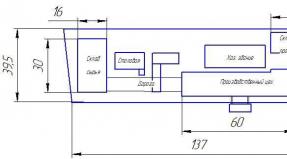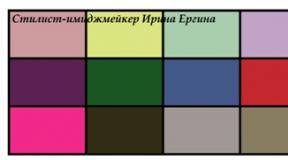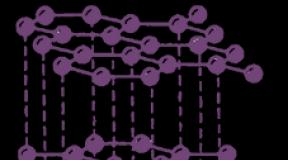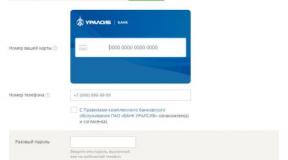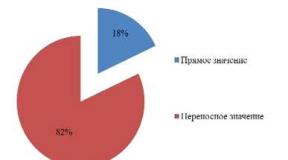How do banks cheat? Credit fraud. What they are silent about
Photo: Nikolai Tsyganov / Kommersant
Having paid off the loan three years ago, a resident of Moscow did not even think that she would have to deal with the bank in court. 500 rubles, which were not deposited into the account on time, turned into a tidy sum three years later. The bank demanded 161 thousand from the client. And even the court could not protect her. Meanwhile, there are a few days left before the entry into force of the law on consumer credit. It is designed to protect borrowers, including from such troubles. The main innovation will be the obligation of banks to disclose the full cost of the loan, and on the first page of the contract and in large print. But there are still dozens of tricks in the arsenal of banks that will allow them to earn on the inattention of their customers.
hello from the past
Loans repaid in the distant past often return like a boomerang. In 2011, a resident of Moscow, Tatyana Vorobyeva, issued a loan in the amount of 250 thousand rubles from Trust Bank. The loan was paid off ahead of schedule in two weeks. It turned out that the amount that the client contributed at the time of repayment was insufficient. Only 500 rubles separated her from a quiet life. But the bankers decided not to inform Tatyana about this mistake. Three years later, an alarming message came to her mobile phone. The bank announced that her debt to him was 161,000 rubles. The client went to court, but she did not have any documents that would confirm that three years ago she deposited money precisely in order to repay the loan ahead of schedule. The bank decided that she simply replenished the account in order to further service her debt. On June 17, 2014, the Chertanovsky District Court agreed with this interpretation and did not satisfy the claim of Tatyana Vorobyova.
In order to avoid such a situation, Rustam Batyrov, a lawyer at the Yukov & Partners Bar Association, advises to regularly obtain certificates from the bank on the current amount of debt, and in the event of full repayment of the loan, a corresponding certificate. After all, such a sudden debt can cause a spoiled vacation. If it exceeds 10 thousand rubles, the credit institution has the right to go to court and ensure that the client is restricted from traveling abroad. According to the National Collection Service (NSV) collection company, approximately 530,000 Russians will not be able to leave the country this year due to bank debt. So before the trip it is worth checking if you have a debt on a loan that was repaid several years ago.
Useless insurance
Banks also use a lot of other tools to capitalize on poor customer awareness. For example, insurance is the number one service on the list of optional services that a bank employee will certainly try to impose. Usually, when applying for a loan, it is silent that insurance is voluntary. It happens that the bank misinforms the client, informing him that this is a mandatory service and the loan will not be approved without it. Sometimes there is no insurance at all. But it is attached to the loan agreement automatically, and a gullible client signs it. As a result, the credit burden becomes even heavier, as the loan becomes more expensive due to the cost of the policy.
Photo: Alexander Koryakov / Kommersant
YUST lawyer Dmitry Zabrodin reminds that granting a loan under compulsory insurance infringes on consumer rights and violates a number of laws. “Only voluntary insurance by the borrower of the risk of his liability is allowed,” the lawyer says. It is important to know that if you refuse insurance, the bank has the right to set a higher interest rate on the loan. According to Dmitry Zabrodin, the Supreme Arbitration Court of the Russian Federation recognized this practice as legal, but the difference between the increased rate and the rate on a loan with insurance should not be discriminatory.
Cards, money, overdraft
The largest number of problems for consumers of banking products arises, oddly enough, with ordinary plastic cards. Even the owner of a debit card, who did not even think about taking out a loan, may be indebted to the bank. The Public Opinion Foundation reports that 78 percent of Russians participate in the salary project of a particular bank. Sberbank alone reported in the middle of last year that it had issued 3.7 million payroll cards in Moscow. VTB 24 issued over 5.85 million payroll cards throughout Russia, while Alfa-Bank issued over 700,000 in 2013. It turns out that the salary card is the most popular banking product in the country. And anyone can have problems with it. A common case: a payroll project is closed or an employee quits, and the bank transfers all payment obligations from the company to the client. Often, such projects include an extended list of premium financial services (for example, a personal consultant), which can cost him a pretty penny. To avoid this situation, when dismissing or changing a bank, you need to personally contact a credit institution and close all cards and accounts.
An old payroll card often becomes the cause of a technical overdraft - the client goes into negative territory on a debit card due to the fact that money for annual service is withdrawn from an almost empty account. Further, the bank will begin to accrue interest on this negative balance, and a forgotten card in a year or two may become the cause of annoying calls from collectors and litigation for its owner. In addition, a technical overdraft on a debit card may occur when withdrawing cash from an ATM of a third-party bank, which will charge a commission for this procedure. Taking into account it, the amount for the operation may not be enough and the account again goes into negative.
There is a certain risk when working with currencies. Ksenia Mukhorina, Head of the Credit Department of Citibank's Private Clients Directorate, says that the final amount debited from the card may be higher due to exchange rate differences. This situation occurs when withdrawing cash or when paying for purchases in foreign stores. “It is recommended to pay the missing amount and close the overdraft as soon as possible, otherwise penalties are possible,” says a Citibank representative.
You can also make money on inattentive credit card holders. Not every bank explains to the client that the credit card is intended for cashless payments. As a result, the borrower goes to the nearest ATM, withdraws all the money from the card and uses it as if he had issued a classic consumer loan. Indeed, the vast majority of Russians do not perceive a plastic card as a tool for cashless payments. This is evidenced by the statistics of the Levada Center. During the survey, 69 percent of the population admitted that they use a bank card only to withdraw cash from an ATM. Only 20 percent of respondents said they pay by card in stores. Penalties for cashing out a credit card come immediately - a commission is charged, and in some cases the grace period is suspended (the time when money can be used without paying interest). The client is again in the cold.
Commercial break
Another way to lure a client is to send SMS about an approved (or mysterious “pre-approved”) loan. The bank writes that they will give you a decent amount at a low interest rate. All you have to do is come and collect the money. In fact, such messages are not confirmation that the loan is actually approved. This is nothing more than an ordinary advertisement designed to attract a client. There is no limit to the disappointment when it turns out that the loan will be approved only after a thorough check. The real rate on such a loan, of course, is much higher than indicated in the SMS. But, like any advertisement, such a message must be formatted appropriately, otherwise it violates the law. Lawyer Rustam Batyrov explains that the SMS should contain the name of the bank, as well as all the conditions under which the loan is offered and which determine its actual cost for the borrower. Otherwise, such a message misleads the client.
The most attractive baits are thrown into home appliance stores and mobile phone stores. “Overpayment of 0 percent”, “0-0-24”, “Installment for half a year” are successful marketing tricks that promise interest-free loans. “Of course, there are interest. They cannot be absent, they are simply included in the cost of goods,” says German Belous, director of the retail business department at SB-Bank. The banker adds that often paid insurance can be offered for such a loan. Installment plans do exist, continues Mr. Belous, but only for a fixed period, after which interest will begin to accrue. “All these conditions must be spelled out to the client without fail,” he recalls.
HCW reports that delinquency on POS loans (loans issued at retail outlets) grew faster in the first quarter of this year than other types of lending. Its volume amounted to 23.2 billion rubles. The NSW explains this by the fact that smartphones and other gadgets are acquired spontaneously, under the influence of the so-called “wow effect” from the abundance of seductive advertising. There is no need to talk about any financial planning here. A person comes to the store, sees a sign about a super-favorable loan and cannot resist. Not everyone can service such a spontaneous loan, delays are allowed, and the debt grows.
Hidden threat
Experts unanimously repeat how important it is to carefully read the loan agreement before signing it. After all, the bank could add a lot of additional paid services to the contract, which after signing it is no longer possible to refuse. Alexander Galkin, head of the retail lending department at Globex Bank, notes that information on the full cost of the loan should be included in the loan documentation. This figure includes all settlement elements, including various commissions. But in practice, clients often face so-called hidden fees.
Lawyer of the Society for the Protection of Consumer Rights Oleg Frolov, in turn, complains that clients do not always want to carefully study the documents. This allows banks to set their traps. According to him, the contract may contain commissions for operations that should be provided free of charge - a commission for transferring money to a card, for servicing an account, and the like. “Consumers are deceived very often. As a result, they cannot calculate how much they need to pay the bank, and they get into debt, ”says Frolov. He emphasizes that in 99 percent of cases the court takes the side of the client who is faced with hidden fees.
A clear illustration of this is the litigation between the borrower and M-Bank. The client spent 58 thousand rubles on paying commissions. The bank took money from him for reviewing a loan application, for providing a loan, as well as for settlement and operational services. The client felt that his rights were violated. On March 21, 2014, the Lytkarinsky City Court of the Moscow Region made a decision, according to which the bank is obliged to return to the borrower the funds paid for the consideration of the loan application and for the provision of the loan. Thus, the client managed to return almost 42 thousand rubles.
In such cases, the court is guided by three provisions, explains Oleg Frolov. First, the consumer, according to the decision of the Supreme Court, is recognized as a weak party to the contract, despite the fact that the contract is signed voluntarily. Secondly, the operational actions that the bank performs, in most cases, should be carried out free of charge, without any commissions. Finally, thirdly, the courts take into account the insufficient information support of the consumer - banks do not decipher all the provisions of the contract in detail, and in order to understand them on your own, you need to be a financially savvy person. “Fortunately, we are gradually moving away from the “primitive” lending of the past. Consumers have become more literate. But the problems still remain,” notes the lawyer of the Society for the Protection of Consumer Rights.
The key provisions of the new law on consumer credit are precisely related to informing the client. It details all the nuances of the execution of the contract, the rights and obligations of the parties. The credit organization will have to provide the borrower with all the necessary information. And the full cost of the loan will be printed right on the first page of the contract. Large print and framed. If banks play honestly and abide by the rules, lending conditions will become more understandable for the population. But this does not mean at all that you can leave your signature without especially reading the contract. It is a good habit to carefully study the document before agreeing to its terms. As practice shows, not everyone understands this.
The article describes the main tricks of banks, knowing which, you will not fall into the "credit trap". Be careful and don't be fooled!
From TV screens, on the radio, we are waiting for the tempting assumptions of credit institutions that they will provide, literally free of charge, the amount of money you need. Some understand that this is the most common marketing ploy, and some do not. The main purpose of the article: to acquaint you with some of the pitfalls of banks that you may encounter on the way "> acquiring a loan (increase in interest rates on loans, terms of the final amount, and so on).
Let's take a standard situation. At first, you are offered only twelve percent per annum. It is these indicators that the borrower sees on the first day of the loan. You soon discover that the real amount is much larger than expected. And it can be such a surprise, pay up to thirty or twenty-five percent!
To avoid trouble, make it a rule to always demand from the bank the final amount of payments and a detailed payment schedule. The bank does not have the right to refuse you this, and you will be aware of payments for the entire upcoming period. It is also necessary to discuss the issue of possible cancellation of the loan payment. The point is that the bank can keep a certain amount of money in such a situation.
When requesting the total amount of the loan, you will find out the amount that you will pay monthly and the final amount, respectively. Let's give an example: you decide to buy a house and apply for a mortgage, the amount of which is two million rubles. Thus, in 25 years you will have to pay about 6 million 766 800 thousand rubles at an interest rate of 13 percent (let's take the average figure for the country).
By raising the interest rate on the loan by only one percent, we already have 7,222,500 rubles. Now think about whether you need it or not. It is necessary to find out whether it will be possible to pay off the loan in a shorter period, and whether there are any penalties in this case. This will significantly reduce the overpayment ratio.
Consider a simple rule: for a female, easy-to-get loans are the most disadvantageous. As you know, nothing is so simple in this world. If you see an advertisement for a loan that does not require guarantors and just a couple of documents on hand, run as quickly as possible. As a rule, the interest rate of such monetary institutions increases enormously.
Perhaps you have highlighted this ad: "Zero down payment!". Again, the bank only cares about itself. Altruists are nowhere to be found. In such a situation, the real interest rate sometimes reaches 53 percent, when a similar loan can be purchased at a rate of 13-14 percent.
At various stages of processing documentation for a loan, there are bank commissions little known to the common man. Consider the application - please only pay the Nth amount. Opening an account or transferring money is a similar situation. Let each of the commissions seem insignificant, but if you calculate the whole amount together, then it will not seem insignificant in any way. Therefore, always ask again and clarify everything to the smallest detail.
The insurance contract deserves special attention. As a rule, here you will find a whole list of situations in which you will not receive insurance payments. Look very carefully at this point. Otherwise, no matter how the situation develops, you will remain the debtor. For example, a terrorist act or alcohol intoxication are not recognized by some banks as an insured event. It follows from this that it is necessary to look for a bank whose insurance listing covers as many insurance options as possible.
The bank's next ploy may be a copious amount of technical terminology, hiding behind the bark the bank finds a loophole to squeeze more money out of you. Unfortunately, this practice is not new in our country.
Especially for this, the Central Bank of Russia has developed a document - "Borrower's Memo". It describes in detail the main terms and their meaning, as well as points that you should pay attention to when taking out a loan. It never hurts to ask for such a “piece of paper” at a bank branch and refuse to provide such a bank, it also has no right.
In principle, it is not recommended to take loans at all, unless absolutely necessary. Experts have deduced a simple rule: you should not take a loan that does not grow in price. Thus, it is better to pay for trips to a resort, buying a car or household appliances in cash, having previously accumulated them. From this it follows that the most profitable in terms of lending is a mortgage loan.
It is no secret that the value of real estate is growing by leaps and bounds.
People simply do not have time to collect money for housing. If you are one of those who invest a certain amount in housing that is being built, then it will not be superfluous to take out insurance for all possible financial risks.
It is better to overpay a certain amount and be confident in your future than to wait for trouble, but at the same time saving several thousand. Moreover, now there is a whole mountain of such campaigns that will offer you to do this for 1.5-2 percent.
Interestingly, in the near future, a special bill is being prepared for release, which will enable any private person to declare himself bankrupt. What happens if you take out a loan and declare yourself bankrupt?
At the same time, all possible property will be seized from you to repay the loan, and the balance (if the property is not enough) will simply be written off. You will have a chance to start life from scratch. In the meantime, the debt will hang on you until the situation is resolved. You will not be put in jail (if there was no fact of fraud), but all your property can be taken away through an auction.
Be careful and don't let the government fool you.
It is hard to imagine life without banks. In all countries, they personify the economy and financial leverage. These are powerful influential structures that earn money. That is their purpose. Banks are not interested in moral aspects, they care about profit.
People apply for money, but receive it on terms that are beneficial only to credit institutions. Taking advantage of the inattention of borrowers and holes in the legislation, they extract additional profit from each client.
Bankers make money out of thin air. Every little detail has been accounted for. Lawyers draw up standard contracts that infringe on the rights of clients, and borrowers have no choice but to follow their lead. If you want money, play by the rules.
Legislation is written for bankers. The State Duma supports this and makes the necessary decisions. It is not known how long this will continue, but we will not come to Western and European standards soon. Banks use all means to make a profit.
Do not shun banks and deceit. Their methods frankly violate not only the civil code, but also the criminal one. The Central Bank deprives the licenses of unscrupulous players, but new ones take their place. As a result, customers and insurance companies suffer, losing billions of rubles.
Until there are laws capable of tightly controlling the financial system, bankers will not stop pulling money at every opportunity. It doesn't matter if it's a small amount or a large one. They take volume, not quality.
Let's look at the main tricks of credit organizations to leave customers penniless.
Hidden fees
Information about them is indicated in the contract in small print with an asterisk-footnote. People inattentively read the agreement and do not notice the catch. The amounts of such commissions are exorbitant. For example, a mortgage uses an illegal account opening fee. The loss of hundreds of thousands of rubles may be the result of the borrower's carelessness.
Grace period
Banks' favorite way to cheat customers. It is massive. The borrower under the action is offered to receive a credit card with a grace period of payment of 30-60 days. During this time, no interest is charged.
The man agrees to the offer and takes a credit card. Then he withdraws the money and thinks that he will return it in 30 days.
The trick is that the grace period is set from the 1st of the month. For example, the borrower withdrew money on the 25th, and 1 should already be returned. The grace period was 5-6 days. He is charged interest, and in the future fines.
The result of such a deception is a debt hole, in which the unfortunate borrower finds himself.
Deception with plastic cards
A bank can cheat a customer with a credit card. A card is issued with free service for a year. The client takes such a card, he has it, but he does not spend money. The bank then issues a new card and charges the service fee automatically. The card goes negative, and the person becomes a debtor.
Details are revealed in an unexpected way:
- the borrower is not released abroad;
- bailiffs appear;
- comes a subpoena;
- a person cannot register property.
Fees for withdrawing cash from ATMs
Banks indicate that no commission is charged for withdrawing cash from ATMs, even if the plastic card belongs to another organization. But it will still deduct from the account. The issuing firm will withdraw funds from the account under any pretext, for example, for the distribution of money for a transaction.
That is, even if both banks through which cash withdrawals are made indicate that there is no commission, in fact the money will be written off. You can even ignore the assurances of the creditor.
Banks do not report debt
The client has a debt, for example, the payment went through a day later. The bank charges a fine and then includes interest. In this case, the client pays regularly. After a couple of years, he is informed that he is a debtor. The amount will be very large.
Of course, on the basis of the Law (On Consumer Lending), no one is obliged to run after the borrower, but you must agree that such an attitude causes serious problems for clients of organizations.
Banks make good money on fines, and ordinary people suffer as a result.
Payroll scam
A commercial firm entered into an agreement with a bank to issue salary cards for employees. The agreement stated that the bank could charge a service fee if there was no movement on the account within six months. Then, the company enters into an agreement with another bank and makes other cards. Money is automatically debited from the accounts of employees, and they fall into the category of debtors.
Cheating with depositors is a favorite pastime for banks. Suppose the client decides to withdraw the deposit ahead of schedule, the interest may not be returned.
The interest rate may even be lower than the requirements of the Central Bank, which is contrary to the law.
The deposit can be issued not at the first request of the client, but after a few days. The reason is simple, the collection did not bring the required amount. Order money in advance. And at this time, the bank turns the funds, making a profit.
Deception of the borrower when issuing a loan
Many borrowers are wondering if they do not give a loan, what to do? After all, you need money urgently, what to do? We have repeatedly written that other people's funds must be spent wisely in order to avoid debt problems. But people make the most common mistake, they take out a new loan to close the old one, thereby digging a deep hole for themselves.
Most do not understand why this leads to critical consequences. It turns out that almost all banks have the same lending conditions. The difference is insignificant. It’s just that each credit organization disguises hidden interest, and if you see that someone promises more favorable conditions, then they have additional commissions or.
Let's take a standard situation, the borrower has a loan that he repays on time. But something happens and a person allows a delay in payment. The bank demands to immediately close all the debt, plus pay interest and penalties. At the same time, the client is constantly called and threatened.
Of course, a person is trying to solve the problem and the first thing that comes to mind is in another bank. He does this and closes the old debt. But since the terms of the loans are about the same, he also cannot pay the new loan. What has actually changed? This continues until the banks finally stop lending to such a person.
As a result, the problem is not solved, and the borrower begins to look for new ways to get money to pay off creditors.
Several ways to get money
After all banks have refused, the debtor begins to mortgage property. The easiest thing to do is go to a pawnshop. This is how people give things that are in the house to the banks.
Then comes the car, if there is one, and real estate. Familiar situation? Of course, this happens under the condition that large sums are needed. A large number of entrepreneurs thus lost everything they had.
If a person is not given a loan, but he needs money, and moreover urgently, all means are used. The next final step is to appeal to private individuals - usurers. Who will be able to lend money, even if the credit history is completely ruined.
Fraud from loan sharks
Now a new type of private lending is gaining popularity. The borrower is given a large amount of debt, without interest and overpayments secured by his property. At the same time, previous delays are looked at. The more of them, the better.
There is a high probability that the borrower will make a new delay. Contracts are drawn up in such a way that already on the 10th day of debt, real estate is taken away from a person or they are asked to pay the entire amount in full. Moreover, the collateral will have to be given away, even if you decide to apply a new one.
If, nevertheless, the borrower manages to pay off, then the lender does not lose anything. According to statistics, only 30% repay the debt, the rest lose, at times, their only home.
Another option is that people are given a large amount on bail, but in fact it is less than indicated in the contract. The overpayment will be the interest rate, and sometimes such amounts vary up to 40%. Be careful and legally literate!
Below is a common method of stealing money from customers' bank cards with the direct participation of bank employees. Scheme as follows:
- A stable criminal group is being created, which includes a bank employee who has access to the bank's customer database. The task of which is to transfer data about bank customers to criminals who steal money from the bank cards of their victims.
- Psychological processing of bank card holders in order to obtain a PIN code.
- Withdrawal of funds from a bank card account by intruders using an illegally obtained PIN code.
The theft scheme is primitive, but it is often used, because bank employees are well acquainted with technologies and have access to the client base.
On the example of a real case of illegal withdrawal of a large amount from a client’s debit card, which occurred in 2019 in one of the Irkutsk banks, one can trace the tactics of processing the victim by criminals in order to find out the PIN code.

As a rule, a potential victim receives a call on a mobile phone, the number of which is in the bank's database. The call is made by criminals to the owner of the card at a time when he is busy, and his attention is somewhat weakened. This is the period from 8 to 9 am, when the victim is going or is already getting to work by car, or from 5 to 7 pm, when she is stuck in traffic on her way home from work.
A dialogue takes place during the call of the offender to the victim with approximately the following content:
- Hello! Are you Ivanova I. I.? Living at the address (address of the bank client indicated in the card details)? Your card number XXXX XXXX XXXX XXXX?
- The operator of the client department is talking to you (the name of the bank and fictitious or real). Full name of a bank employee.
“Unfortunately, there was a computer failure at night, and there is a possibility of leaking customer bank card data. In order to secure the funds on the card, it is necessary to generate new PIN codes.
- Please provide the card code, which we will immediately replace with a new one, in order to prevent hackers from using the old PIN code for illegal withdrawals.
You can check the information by phone (a constantly busy phone).
— Please hurry, because there is a danger of losing funds.
With a high degree of probability, the client will provide the password of the card to the attacker, since he, in a conversation with a potential victim, relied on such information about her that only a bank could have. And that inspires confidence...
In our case, the victim gave the criminal a PIN code, as a result of which a large amount of money was stolen from the card.
Outcome
Bank employees never ask for passwords from personal accounts and cards. If you have been approached with such a request, immediately report this to the creditor's security service and law enforcement agencies. Also insure accounts, connect SMS support for transactions.
If you need a free consultation with a specialist, write your question in the comments to the article or ask it to the duty lawyer of the site in the form of a pop-up window. Also, you can always call us at the indicated numbers. We will definitely answer and help.
A fraudulent borrower is an inadequate, irritable, but sometimes vice versa, chatty and charming person with shifty eyes, who is not interested in the terms of the loan agreement. The average age is up to 30 years. The average income is 20 thousand rubles. These are the observations of microfinance organizations.
Themselves with a mustache
Recently, the press reported on a married couple from Sterlitamak who fraudulently applied for a loan in an online MFI for 9,000 rubles. They were sentenced to probation, forcing them to return the money.
Creditor scams are reported more frequently, with public outrage forcing MPs to push prohibition bills. For example, Sergei Mironov, the leader of the Just Russia party, recently again called for a ban on microfinance activities, saying that "the undisguised robbery of our citizens continues."
On the one hand, for one message about deceit by MFO citizens, there are several dozen news about bad faith of creditors. This is understandable: the larger the crime, the louder the resonance. The “robbery” of citizens is small, but massive - you can’t write about all of them. It is easier to talk about creditors-offenders - their deeds are louder.
On the other hand, the average level of bad debts in the microfinance market is 25-30%. Some lenders are frank about defaulting on 8 out of 10 loans. “Risky” clients of MFIs are those who initially do not plan to repay debts, and those who borrow money under a false name. And, of course, citizens “in a difficult life situation, unable to pay off their debts,” as creditors say. These risks are known to translate into high interest rates for MFIs to compensate for losses.
Everyone will know about those who are tempted
Experts believe that since the entry into force of the “law on collectors”, the level of bad debts of MFOs can grow by an order of magnitude: the hands of the collectors will be tied, thereby untying them to unscrupulous clients. Companies that issue loans via the Internet may be particularly affected: it is difficult to identify a borrower, and it is even more difficult to demand a repayment of a debt due to a distance of thousands of kilometers. Fraudsters are already counting on this, drawing up, like a couple from Sterlitamak, microloans on the Internet for a figurehead.
However, it is too early for swindlers to rejoice - now they will be even more carefully protected from the temptation of deception at the stage of document verification. Rosfinmonitoring together with the Central Bank will begin to transfer "black lists" of clients to banks by the end of the year. They will include all those citizens and legal entities who, by their criminal actions, provoked the refusal of various creditors to service. Information will be provided by the financial market participants themselves, reporting to the regulatory authorities on all cases of fraud that have been in their practice. Thus, everyone will know about crime-prone clients.
Banks will use "black lists" to identify their own clients and borrowers of large microfinance companies. Only they will be entitled to issue online loans from the spring of 2017. "Blacklists" will be updated regularly, but there are suspicions that not as fast as we would like. For example, the popular federal online loan service Robot Zimer reports 0.19% of its borrowers who tried to defraud a lender in the first half of 2016 alone. In figures, there are 57 "criminal" clients for every 30,000 clients. Moreover, “Zimer” is another type of fraudulent borrowers: those who received money, but reported that they did not take it. As a rule, such situations are quickly resolved in favor of the creditor after the first mention of the police.
The material was prepared by the information service of the Zaimer online loan service
Today, there are numerous cases of non-repayment of loans taken by citizens who have lost the opportunity to pay in full and on time due to the deteriorating economic situation in the country. And what about the banks themselves? Are lenders honest with their borrowers? The topic of this article will be financial institutions involved in defrauding customers. We will talk about how banks cheat people and give you some tips on how to avoid trouble by taking a loan.
Recall the famous saying about free cheese
Banks tirelessly invent new loan products, conduct various promotions and use other methods to attract new customers.
Our compatriots have long appreciated all the advantages of borrowed funds and willingly join the ranks of borrowers, sometimes showing excessive credulity, which, of course, is used by dishonest businessmen in the financial market.
The advertisements of individual banks contain calls to take loans from them at fantastically low interest rates, or they promise to issue cash in the shortest possible time and without verification. Are you wondering what advertisers are hiding?
Today, customers are deceived with loans either in the process of applying for a loan or by offering a credit card.
Loan processing
Most often, borrowers are deceived when applying for a loan. First, the terms of the loans written in the advertisement imply that you are the ideal client, meeting the numerous requirements of the advertiser bank, which only the bank knows about.
Of course, you do not meet the requirements of the lender, so the loan will be offered on completely different terms, that is, the interest will be much higher, the loan amount will be lower, and the term will be shorter.
Secondly, despite the numerous complaints that deceived people write , rogue bankers' loan agreements still have some sly extras in small print. Few people read this text, but in vain, as practice shows!
In small letters, the bank, for example, reports that for minor violations of the terms of the contract, the borrower will face huge fines and penalties for each day of delay. Well, and so on in the same vein. Any commission fees, which are also mentioned in the finely written part of the text, significantly increase the cost of the loan, but smiling managers do not talk about this.
There is a practice when the bank changes the terms of the loan agreement unilaterally. In this case, the unsuspecting borrower regularly pays installments, counting on the term specified in the contract, but suddenly the bank notifies him of the delay and debt, since the repayment term was changed by the bank without notifying the client.
A person who urgently needs money is unlikely to thoughtfully read the text of a loan agreement that is difficult to understand, especially if it does not occur to him that he can be deceived. Problems start later, when it comes time to pay.
Advice: you should ask questions to bank employees and thoroughly study everything written in the loan agreement.
Another pitfall
You have successfully and timely paid all installments on the loan and live peacefully. But suddenly, like a bolt from the blue, you receive a notice from the bank about some incomprehensible debt.
There are two options: either you will be asked to repay the loan you have already paid, or the bank, having received your next installment on the loan a day later, imposed a fine on you and waited for the penalty to run up.
- Do not rush to throw away your loan repayment receipts.
- Be sure to pay the loan, ask the bank for a certificate of the absence of any debts for you.
How we are deceived with credit cards
Our citizens have long appreciated the convenience of bank plastic cards instead of cash. Clever businessmen did not fail to take advantage of the opportunity that appeared and deceive gullible citizens with credit cards.
Not only banks, but also other financial institutions are engaged in issuing credit cards. Anyone can get a credit card today. This service is available via the Internet - fill out an application on the site and the courier will deliver the card. It does not matter if a person has a job, what his credit history looks like, what he lives on.
This is convenient - you need money, but the bank refuses a loan (for example, a bad credit history), the financial company will immediately send a plastic card with money in the account without any checks. What's wrong with that? In fact, everything turns out to be completely different from what the dodgy financiers describe in advertising. What is actually waiting for you:
- You have to pay for using the card;
- You will learn the terms of the loan provided only when you receive the card and the agreement with it. By the way, the interest will be large, and the limit on the account is unlikely to exceed 30-50 thousand rubles;
- The agreement usually provides for large fines and penalties for late payment of contributions;
- Unfavorable conditions cannot be challenged, because by signing the contract, you agree with everything written (including additions in small print).
Where to go if you have been scammed with a loan?
If you deceived the bank, and you have documents confirming this fact, feel free to file a claim with the court. What else can you do to avoid getting into trouble? Financial risk insurance can help protect you from dishonest creditors. What is credit insurance, we told in detail.


